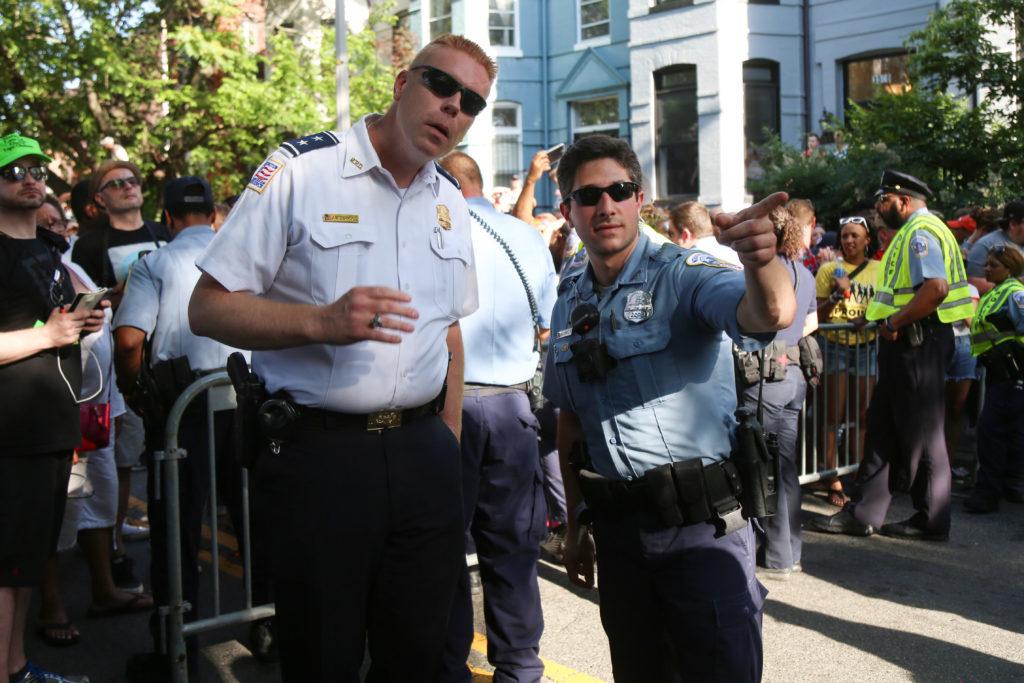D.C. police are turning to community volunteers – including some GW students – to respond to domestic violence calls and support survivors.
Starting this week, the Metropolitan Police Department will officially begin a domestic violence liaison program, training about 20 citizen volunteers – including at least six GW students – to offer initial aid and information to survivors, Marvin Haiman, the director of MPD’s Office of Volunteer Coordination, said.
The volunteers will train with DC SAFE, a District advocacy organization for survivors of domestic violence, to learn how to handle a domestic violence situation and present survivors with information about obtaining stay-away orders, applying for a free lock change and potentially leaving their home to stay in a shelter.
Haiman said survivors will likely be more trusting and receptive to help from non-uniformed civilian volunteers compared to police, making it potentially easier for survivors to leave an abusive situation.
“If you have someone that’s area of passion is domestic violence work and resource work, and you make sure that person is in the scene at the right time. They’re better able to provide resources than an officer that has to now go to another call, another call and another call,” he said.
Liaisons will most likely report to the fifth, sixth and seventh police districts on the eastern side of D.C., where the majority of domestic violence cases arise, Haiman said. The current class of volunteers will train throughout September before riding along with officers in October.
MPD will continuously recruit liaisons for later classes in the program. The department hopes to recruit community members, particularly those who have an interest in assisting domestic violence survivors, public health, social services or law, according to its website.
MPD specifically reached out to GW’s sociology department to recruit students for the program, according to an email obtained by The Hatchet. Haiman said he did not know the majors of students participating in the program.
Students in particular would benefit from the volunteer program by obtaining real-world experience in domestic violence response, he said.
The system was designed as an extension of the services provided by DC SAFE, which now participates in some ride alongs, but more often works with survivors after the initial call, Haiman said.
Kylie Hogan, the crisis intervention services coordinator at DC SAFE, said the volunteers will connect survivors to DC SAFE for additional aid, particularly those in high-risk, intimate relationships. Currently, police can call DC SAFE about domestic violence cases to connect survivors to services, he said.
“They’re going to be able to offer services more immediately on the scene, so just being able to let people know that there are people there and that they care they’re getting connected to services,” Hogan said.
Instead of being trained as advocates, the volunteers will become public liaisons who are familiar with the resources available for survivors but still operate under police control. As part of the police department, the volunteers will have to divulge to police any information that survivors tell them potentially relating to criminal activity, Haiman said.
Survivors are allowed to have private conversations with staff from DC SAFE once connected to the advocacy organization, Hogan said.
Experts specializing in domestic violence said the program will benefit survivors overall, but the volunteers should make clear that they have to report certain information to the officers to ensure survivors are aware their conversations with volunteers aren’t entirely confidential.
Debby Tucker, the president of the board of directors of the National Center of Domestic and Sexual Violence, said even with police volunteers on scene, survivors still need access to an outside advocacy organization to ensure they can have private conversations about their situation.
“As time goes on, if people don’t have good clarity about their roles, it can get pretty messy,” she said.
Alesha Durfee, an associate professor and graduate director for the women and gender studies program at Arizona State University, said programs like this can help students gain real-life experience into how policy discussed in the classroom impacts people in their communities. Durfee volunteered with the Seattle Police Department through a similar program while in graduate school at the University of Washington.
“I think the insight to gain by seeing people when they’re at their most vulnerable helps you design better systems,” she said. “And there’s nothing that can replace talking to victims for understanding how systems either help or often fail survivors.”





